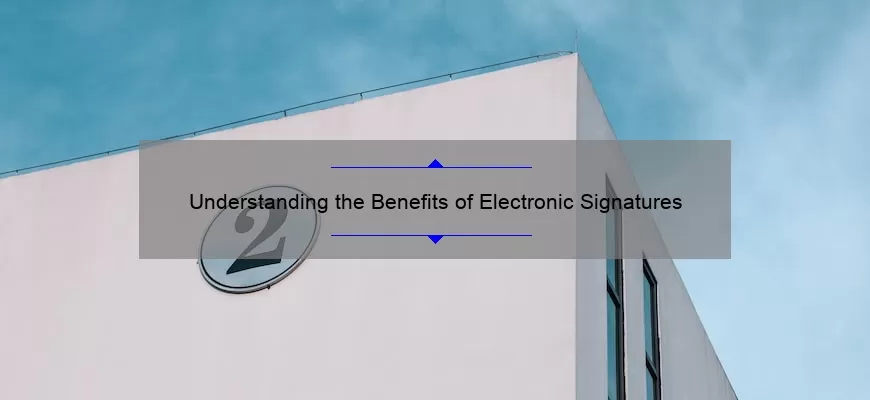How Does Electronic Signature Work?
An electronic signature (or e-signature) is a legally binding digital signature that is used to authenticate documents and contracts online. It is a secure, convenient and cost-effective way of signing documents without the need to print, sign and scan them. An electronic signature can be used to sign anything from an agreement or contract to a simple form or email.
An electronic signature works by verifying a signer’s identity and confirming they have consented to the document they are signing. It is typically done through a secure online platform, where a signer is prompted to enter their name and other information to verify their identity. Once the signer has entered their information, their signature is electronically captured and stored in the platform as a secure, digital record.
The key benefit of an electronic signature is that it is
What Are the Benefits of Electronic Signature?
In today’s digital age, electronic signatures have become a widely accepted and secure way to sign documents. Electronic signatures, or e-signatures, provide a wide range of benefits over traditional pen-and-ink signatures, and are quickly becoming the preferred method for businesses and individuals to authenticate documents.
The primary benefit of electronic signatures is convenience. E-signatures can be used to sign documents from virtually anywhere in the world, at any time. This eliminates the need for a pen, paper, and the time it takes to physically sign and return a document. The process is much simpler, faster, and more efficient, allowing for documents to be signed and returned in mere minutes.
Another benefit of electronic signatures is security. Electronic signatures are almost impossible to forge, as they contain unique identifiers that can be easily
Are Electronic Signatures Legally Binding?
Are electronic signatures legally binding? This is an important question to ask when setting up agreements and contracts in the digital age. With the proliferation of technology and the growing use of digital documents, it is essential to understand the legal implications of using electronic signatures.
At the most basic level, an electronic signature is a representation of a signature that is made electronically. This can be done using software, such as Adobe Sign, or hardware solutions, such as a signature pad. In many cases, the signature is a cryptographic representation of the signer’s intent that is cryptographically signed with a digital certificate.
In the United States, the Electronic Signatures in Global and National Commerce Act (ESIGN) was passed in 2000. This law gives electronic signatures the same legal weight as traditional signatures. It also provides protection for
How Secure Are Electronic Signatures?
Electronic signatures have revolutionized the way we conduct business, streamline processes, and sign contracts. But how secure are electronic signatures?
The short answer is that electronic signatures are incredibly secure and reliable. The technology behind electronic signatures is designed to prevent fraud by verifying the identity of the signer and ensuring the integrity of the document throughout the signing process.
When you sign a document electronically, the system will verify your identity through a secure authentication process. This means that your identity is verified to ensure that only you can sign the document. Once you’ve authenticated your identity, the document is digitally signed with a unique key that links your identity to the document. This unique key makes it virtually impossible for anyone else to forge the document or tamper with it, ensuring that the document remains secure throughout the signing process.






